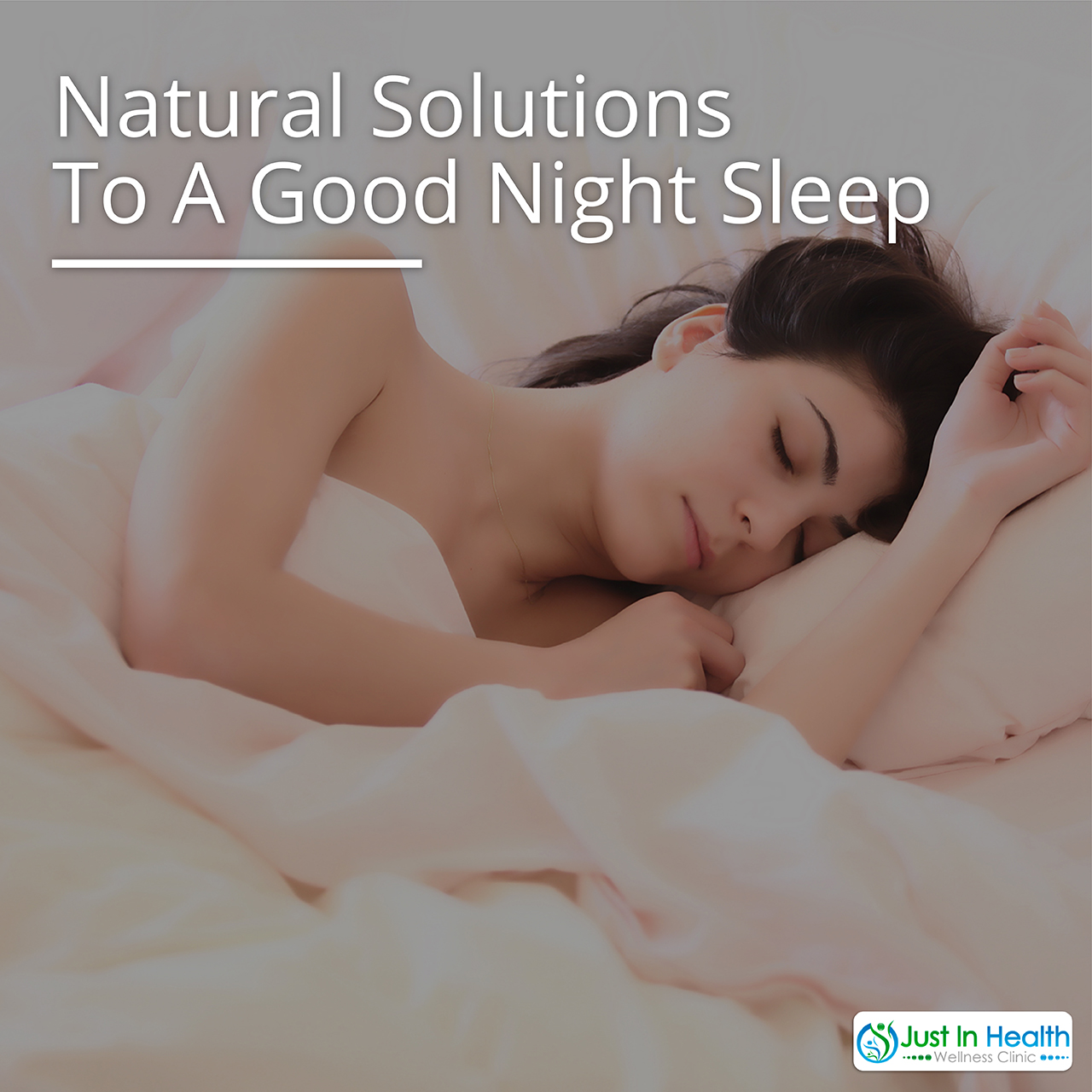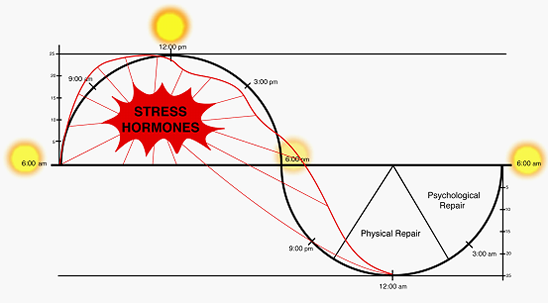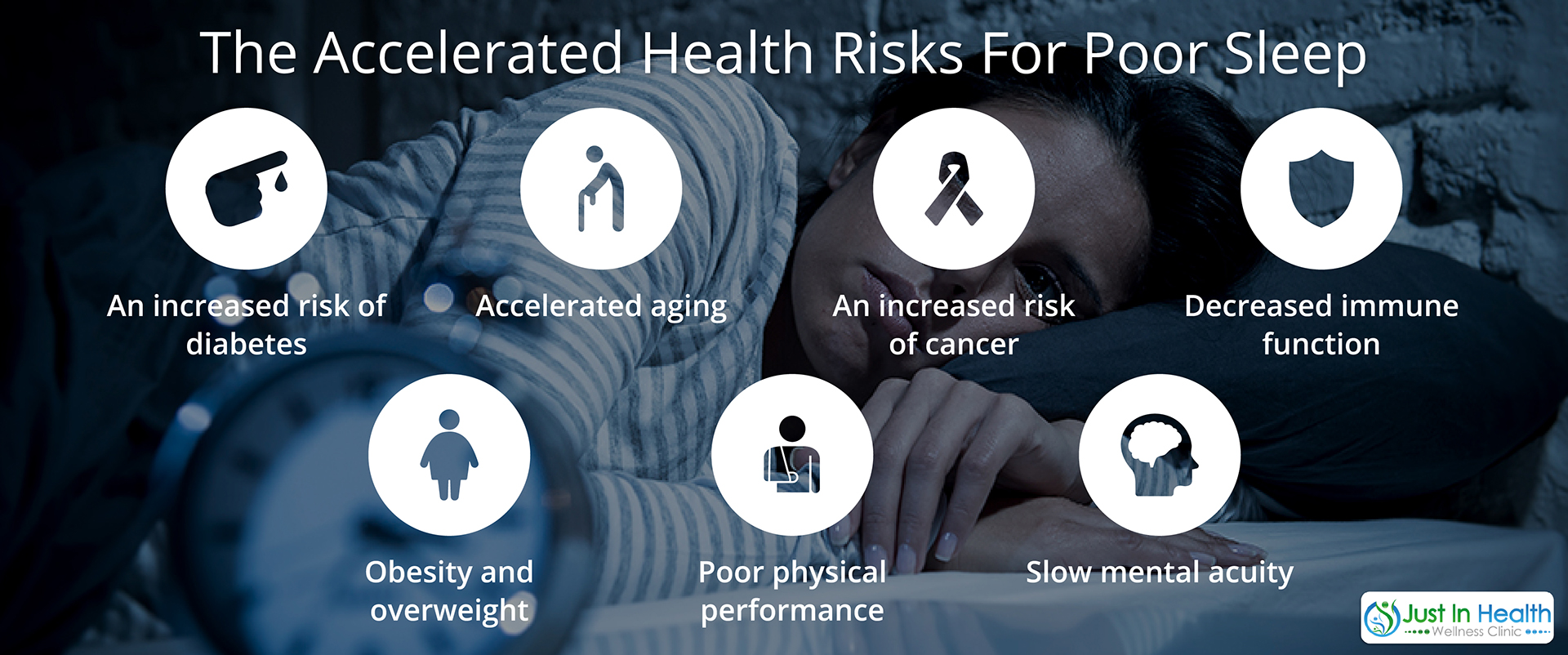

By Dr. Justin Marchegiani
Did you know that over 40% of Americans suffer from insomnia on a daily basis? According to the national Center for sleep disorders over 10-15% of people deal with chronic insomnia on a daily basis. Another staggering statistic, the WHO considers shift-work or sleep deprivation the only non-substance carcinogen known to man. Essentially in the same class as cigarettes, asbestos and other known carcinogenic chemicals… That’s real scary!
Sleep is vitally important to help repair the body physiologically as well as psychologically. Physiological repair such as building muscles, bones, tendons, joints and ligaments etc. occurs between the hours of 10 PM and 2 AM. During this timeframe, HGH (human growth hormone) predominates. You can think of HGH is your ant-aging hormone and by maximizing sleep we can make about $2000-$3000 worth per month for free. Between the hours of 2 and 6 AM the body psychologically regenerates, essentially meaning neurotransmitters and other hormones neurochemicals that help with mental health become recycled and repaired.
Cortisol and it's Circadian Rhythm

The accelerated health risks for poor sleep

An increased risk of diabetes
Accelerated aging
An increased risk of cancer
Decreased immune function
Obesity and overweight
Poor physical performance
Slow mental acuity
It’s estimated that over $100 billion is lost each year due to the loss productivity that lack of sleep causes and is also the main cause of 100,000 vehicle accidents per year as well as 1500 related deaths from those accidents.
The major underlying causes of sleep deprivation:
17% of all US employees are shift workers that have to stay up working during the night instead of sleeping. If I can urge anyone to make an investment in their health, the first thing would be finding a job that allows flexibility to sleep during normal sleep hours. The research is very clear, the increased risk of chronic degenerative diseases and lack of performance will cost you more in the long run financially and physically.
Chronic stressors can be huge underlying cause of sleep problems this could include (relationship stress, caffeine, chronic illness, infections, blood sugar imbalances, family stress and hormonal imbalances). One thing that all stress has in common whether it’s internal stress or external stress is the increase of cortisol and adrenaline. Knocking your cortisol and adrenaline out of balance puts a great deal of stress on your adrenal glands. Your cortisol rhythm at night is intimately tied in with your melatonin rhythm (melatonin is your night time hormone the keeps you sleep) and the more you push your cortisol and adrenaline out of balance your melatonin will also be negatively impacted and so will your sleep. More research is coming out daily on the anticancer effects of melatonin so optimizing your sleep will help lower your risk of cancer.
Stimulants such as caffeine can affect you from getting to sleep on time. Caffeine has a half-life of up to eight hours, so consuming your 1 to 2 cups of coffee or tea before 2 PM in the afternoon gives your body enough time to metabolize the caffeine before your bedtime.
Certain medications can also interfere with sleep like antidepressants corticosteroids, allergy medication and blood pressure medication. If you are currently taking a medication and also have a sleep problem please look up the possible side effects of the medication you are taking and see if sleep disturbances are potential side effect.
Click here if you are having sleep difficulties.
Dr. Justin’s top 7 sleep enhancing tip
1. Exercise every single day, especially using the peak eight program. Using peak eight (burst training) program as well as a combination of resistance training can make a significant difference. The right kinds of exercise can increase human growth hormone which has an excellent effect at blunting cortisol and increasing the repair of your body.
2. Picking relaxing teas such as chamomile or sleepy tea before bed. These types of teas contain certain amino acids such as L-theonine, which help to increase certain neurotransmitters like GABA which help promote relaxation.
3. For certain individual’s melatonin can be a great choice. I recommend using a sub-lingual version, this helps increase absorption as well as increasing activation time. Again, melatonin may not be right for every single person. Some individuals taking melatonin actually makes sleep issues worse. When this occurs there’s usually an underlying hormonal imbalance present.
4. Many of my menopausal female patients have hormonal imbalances that need to be addressed. Low progesterone can be a common cause of sleep deprivation and insomnia. Progesterone has a relaxation effect by opening the GABA chloride channels in the brain and can have similar effect as taking a Xanax with out the side effects. Running a female hormone test can help evaluate this imbalance as well as provide the specific information in regards to dosing and timing of when the natural female hormone support should be administered.
5. Download a free app for your phone entitled “white noise.” White noise can be very helpful at blocking other ambient noise that could potentially wake you up throughout the night. Again if you keeping your phone plugged-in in your bedroom, please make sure it is across the room and if it’s a smart phone also make sure it is in airplane mode. The EMF from the phone can disrupt your sleep and even can prevent you from getting into deeper phases of sleep.
6. Eating a little bit of protein and fat within two hours before bed can help stabilize your blood sugar and prevent cortisol spikes during the night. The suggestion may be against conventional wisdom in regards to eating right before bed but low blood sugar throughout the night will cause your cortisol to go up and increasing cortisol can disrupt your sleep and cause you to wake. A little bit of protein and fat before bed can make a big difference.
7. Give yourself at least one hour before bed to wind down. Turn off the TV, tablets, computers and phones and pick up a non-stimulating book instead. Engaging in meditation and prayer before bed can be very helpful. A simple meditation can include just counting backwards from 10 to 0 with all of your attention focused on your breath and not the problems and stressors of yesterday or tomorrow. Engaging in prayer especially focused on gratitude and all that you have to be thankful for in your life can provide a natural neurotransmitter and hormonal boost that can set you up for a great night sleep.
To receive my full handout entitled “33 secrets to a good night sleep,” click here!